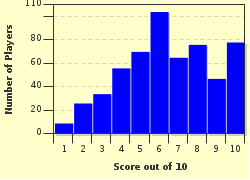Quiz Answer Key and Fun Facts
1. The first part of this village on the border of Kent,
Doth rhyme with a highly unpopular rodent.
Then work out the back bit of this quaintly named town,
That officially lies on the slopes of North Down.
What is the name of this village?
2. What funny sounding English village am I?
On the River Avon, where it's joined by a brook,
Tarry a wee while and take a look.
What sounds like a strand with a metallic middle
Will give you the first part of this rhyming riddle.
What is the name of this village?
3. On the estuary of the River Coquet,
Great ships wouldn't even knock it.
Down by the ocean, take a walk with me
And this quaint town's name will be plain to see.
What town is it?
4. I'm a place rather than a town--but this shouldn't make you frown.
Far more concerning--my name suggests a yearning
For an inebriated stroll across a down.
What place is this?
5. There are three distinct pieces to this strange sounding place
One of them is where you'll find your face.
Another is where you wear your shoes
And the last one a product of something that moos.
What place is this?
6. Fly over this tiny place
And feel a smile upon your face
As you take a gander
At the churchyard yonder
Before on to nearby Oxford race
What is this village's name?
7. Jump into your jeep
To find some wandering sheep
For surely they will flop
Down near this railroad stop
What is the name of this junction?
8. Near English lakes is lofty scree
That sounds like great catastrophe.
If truth be told, it's near a valley
Where game birds oft are wont to tarry.
What's the name of this fell?
9. Immortalized in a Wurzels song,
I've surely spelt this town all wrong?
But dig deep into Somerset
And a good few points for my name you'll get!
What village?
10. Sitting between two Devon moors,
This fair sized village could hold tours
To find the churchman, that's the game
Who sang to give this place its name.
What is the name of this village?
Source: Author
Huw27
This quiz was reviewed by FunTrivia editor
Pagiedamon before going online.
Any errors found in FunTrivia content are routinely corrected through our feedback system.

